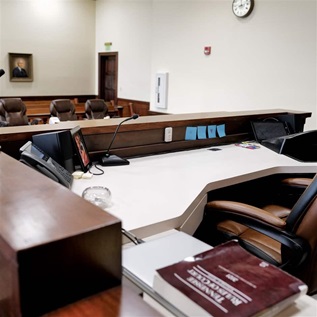Generations United Releases Report with State-By-State Data on Numbers of Children in Relative Foster Care
At a Congressional briefing held today on policies that could improve the lives of grandparents and relative caregivers and the children in their care- also known as grandfamilies- Generations United (GU) released a new report, All Children Deserve A Permanent Home: Subsidized Guardianships as a Common Sense Solution for Children in Long-Term Relative Foster Care, containing state-by-state data on the number of children living in foster care with relative caregivers describing why subsidized guardianship can help children exit foster care for safe, permanent families.
There are currently more than 500,000 children in our nation's foster care system. About a quarter of these children live with relative caregivers in grandfamilies which can include grandparents, aunts, and uncles. Yet many of these children are unable to exit the foster care system to live permanently with these relatives, because, once they leave the foster care system, they are unable to access much-needed supports and services like adequate medical care or special educational assistance.
Those who know the difficulties these caregivers face best—the children and relative caregivers—were on hand to testify at today's briefing about the obstacles to providing safe, permanent homes for the children in their care.
“I had to take my little social security and my retirement benefits and take care of these kids,” said Dorothy Jenkins a 76-year-old New York City grandparent who has raised three of her grandchildren. “I don't know how I did it. I only think about me living long enough to take care of these grandchildren.”
According to the national, nonpartisan Pew Commission on Children in Foster Care, relative caregivers like Dorothy will not be able to provide safe permanent homes for the children they love without the financial assistance and support that proposals like subsidized guardianship would provide. When reunification or adoption has been ruled out, guardianships can:
- Give caregivers support to meet the basic needs of the children in their care and the authority to act on their behalf, for activities most families take for granted such as school field trips, sleepovers, or doctor visits.
- Reduce much of the administrative and court costs shouldered by taxpayers currently to monitor children in foster care.
Although the Adoption and Safe Families Act recognizes both guardianships and adoptions as avenues for creating permanence for children to exit foster care when reunification isn't possible, the federal government does not provide financial assistance to states for guardianships the way it does adoption assistance or long-term foster care.
“More than a quarter of the children and youth in foster care are being raised by relatives. More than 20,000 of these kids would benefit from subsidized guardianship,” said Donna M. Butts, executive director of Generations United. “For these kids living with grandparents or other relative caregivers means the difference between a safe permanent home and languishing for years in the system.”
The briefing highlighted how federally-supported subsidized guardianships could help more children exit foster care to live with relatives or guardians when adoption or reunification is not possible, as outlined in the recommendations of the Pew Commission on Children in Foster Care. The national, nonpartisan Commission, funded by The Pew Charitable Trusts and composed of leading experts in child welfare, legislators, administrators, advocates, academics, and foster and adoptive parents, undertook the first-ever comprehensive assessment of two key aspects of foster care: reform of federal child welfare financing and court oversight of foster care. www.pewfostercare.org.
The briefing also emphasized the additional hardships faced by grandfamilies. Speakers issued a call for reauthorization of the National Family Caregiver Support Program that allows states to develop innovative programs and services to meet the needs of grandfamilies. Experts also testified about the $4 million for LEGACY housing demonstrations that was included in the Transportation, Treasury, and Housing and Urban Development appropriations bill signed into law in November 2005. The LEGACY funds will provide the U.S. Department of Housing and Urban Development with the necessary resources to help local organizations develop housing specifically for grandfamilies.
About Generations United
Generations United (www.gu.org) is the only national membership organization focused solely on improving the lives of children, youth, and older people through intergenerational strategies, programs, and public policies. GU represents more than 100 national, state, and local organizations and individuals representing more than 70 million Americans. Since 1986, GU has served as a resource for educating policymakers and the public about the economic, social, and personal imperatives of intergenerational cooperation. GU acts as a catalyst for stimulating collaboration between aging, children, and youth organizations providing a forum to explore areas of common ground while celebrating the richness of each generation.






